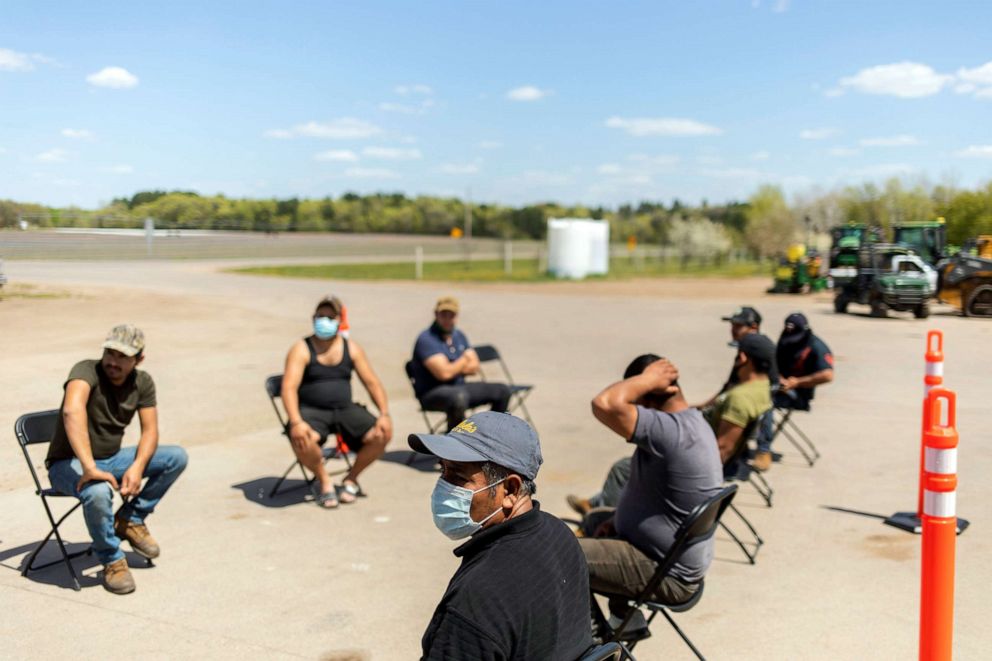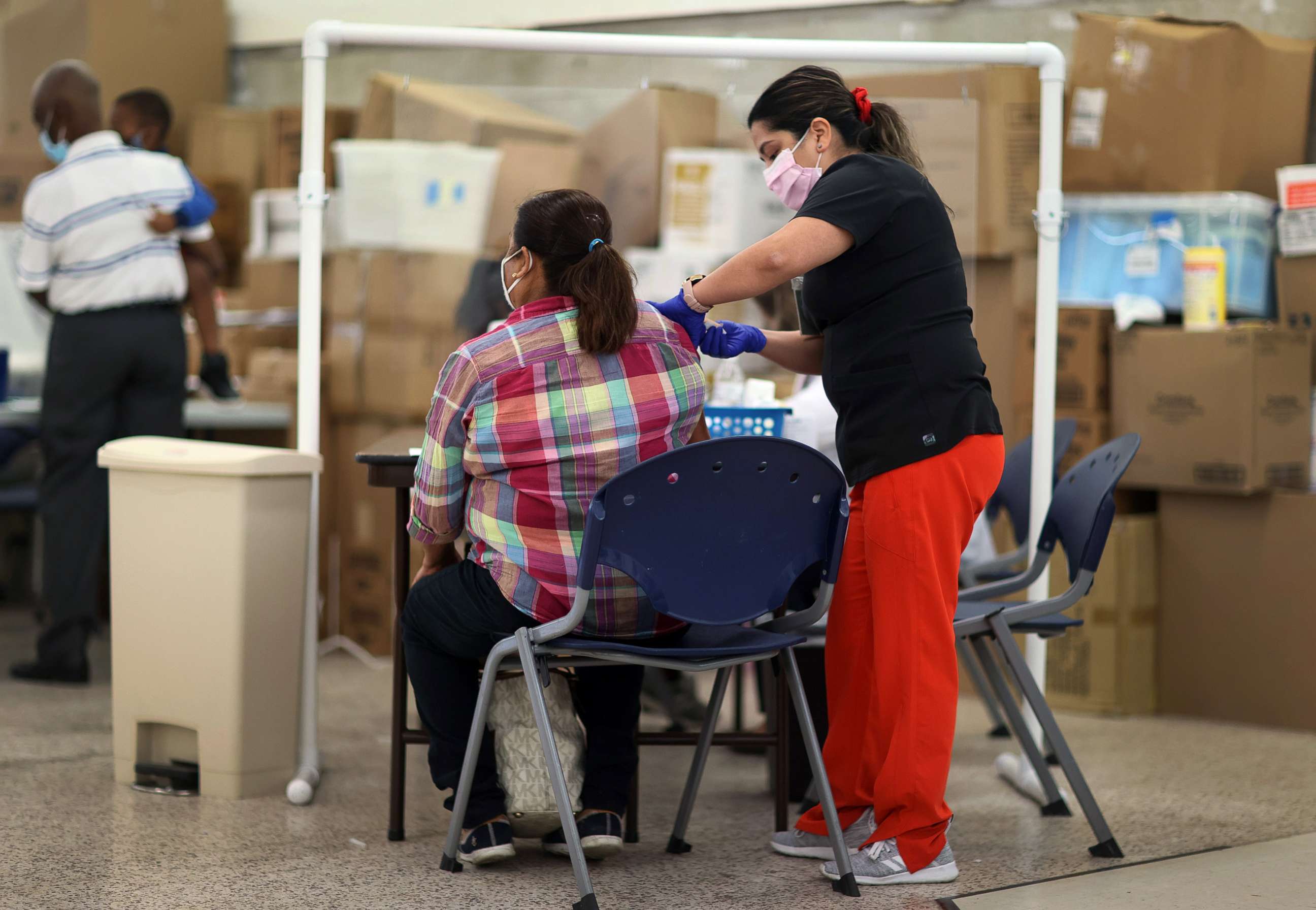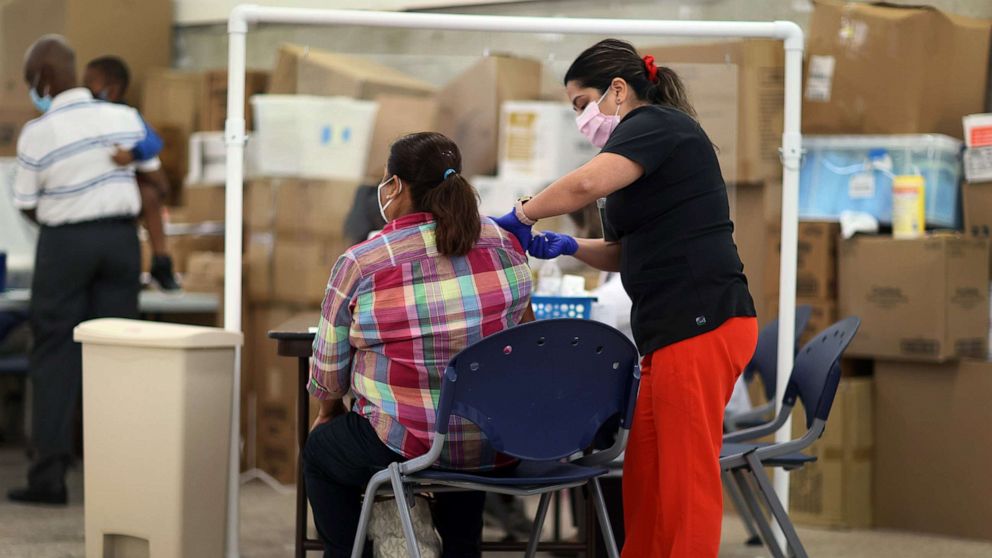Lack of paid leave could be preventing people from getting COVID-19 vaccines, experts say

As the government seeks to increase vaccination rates, especially among communities of color, some experts say a lack of paid time off is keeping many from getting the coronavirus vaccine.
There are currently no federal laws that require employers to provide time off -- paid or unpaid -- in order to get a COVID-19 vaccine, according to Dorit Rubinstein Reiss, a University of California-Hastings law professor whose research focuses on vaccines and the law.
"It's one of the gaps in our vaccine access issue," Reiss told ABC News. "And if we're looking for ways to increase vaccination rates, that seems like an easy, reasonable fix: requiring employers to provide leave."

According to a survey of nearly 18,000 people released earlier this month by the health and data nonprofit Surgo Ventures in partnership with Facebook, as of mid-April the top reasons why individuals in the U.S. wanting to get vaccinated have not done so are: lack of time to get vaccinated, concerns over cost and appointment availability.
Worries over time and cost remain top concerns despite the vaccine being free of charge to all people living in the U.S., regardless of immigration or health insurance status, the researchers noted.
While there are no federal laws specific to paid time off for a COVID-19 vaccine, some states and cities have stepped in to attempt to fill the gaps.
New York in March passed legislation requiring all employers to provide paid leave for workers getting the vaccine. California's 2021 COVID-19 Supplemental Paid Sick Leave law similarly requires employers with 26 or more employees to provide paid leave for vaccine-related reasons.
California's law, however, does not apply to independent contractors.
The city of Chicago recently passed an ordinance that prohibits employers from terminating, disciplining or taking any adverse action against a worker -- including independent contractors -- for taking time off to receive the vaccine. It stopped short of mandating paid leave, except for employers that are requiring their workers to get the shot.
While it isn't legally binding or required, the Biden administration has notably called on "every employer in America to offer full pay to their employees for any time off needed to get vaccinated and for any time it takes to recover from the after-effects of vaccination." The White House has also promised paid leave tax credits that will offset this cost for employers with fewer than 500 employees.
Bringing vaccines directly to neighborhoods or even workplaces where people might have trouble accessing them due to their work schedules could help ameliorate the issue in the meantime if legislation is lagging, Reiss said. She noted that in addition to the paid leave concerns, transportation barriers -- such as lack of nearby public transit at vaccination sites -- can also exacerbate the issue.
"We know that for historical injustice reasons, people of color are over represented in communities that may have less access to vaccines," she said. "Right now, the big problem really is access, and our focus should be on bringing the vaccines to the people that need them."

The pandemic shined a spotlight on the nation's lack of a paid sick leave policy, especially for independent contractors or day workers, and prompted temporary legislation to provide it for many who previously didn't have it.
Some 25% of private industry workers did not have paid sick leave in March 2020, according to the U.S. Bureau of Labor Statistics' most-recent report on workers' benefits. Lower-wage service workers had even less access when broken down by industry, according to BLS data. Some 48% of workers in leisure and hospitality did not have access to paid sick leave, the same report noted, compared to just 7% of workers in the financial activities and information sector.
The pandemic-era Families First Coronavirus Response Act provided many workers with paid sick leave for reasons related to COVID-19, but this aspect of the legislation expired on Dec. 31, 2020, according to the Department of Labor, though some tax credit policies incentivizing paid time off were extended.
While it may not be mandated, Reiss said that it is in an employer's best interest to encourage their workforce to get vaccinated, as this can avoid outbreak-related business closures. Employers also have an obligation to provide a safe workplace, she noted.
"But from a broader point of view, it's good for all of us when people are vaccinated," she said. "Employers have to live in this country just as everybody else and the pandemic is not good for any of us. So, letting your workforce get vaccinated takes us another step closer toward the end of the pandemic."




